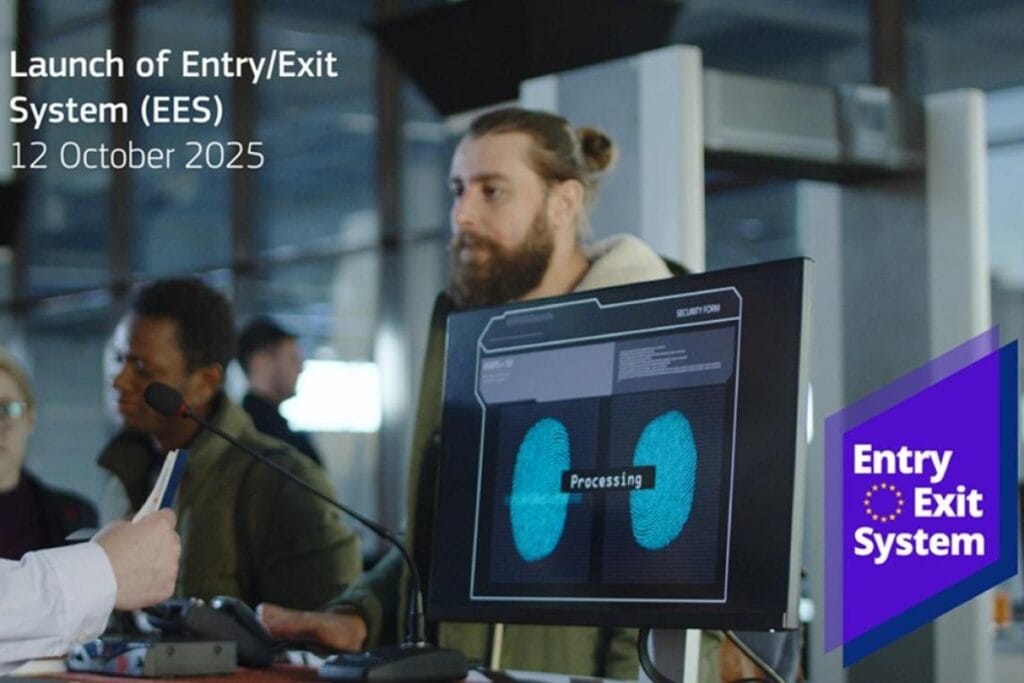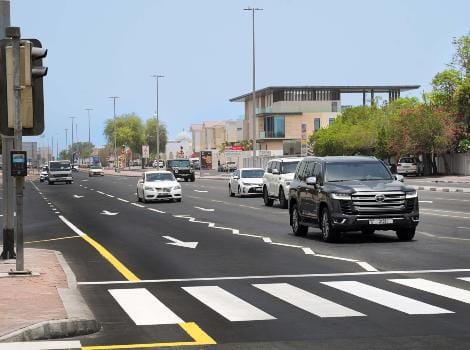
The Ministry of Foreign Affairs reminded UAE citizens this week that Europe’s new entry system goes live October 12, 2025. Passport stamps are out. Fingerprint scans and photos are in.
Anyone travelling to Schengen countries from Sunday will have biometric data collected at the border. The process captures fingerprints, facial images, passport details, and entry-exit dates. That information stays on file for three years.
“Upon your first entry into any EU country, your passport details and biometric data (photo and fingerprints) will be stored for three years,” the ministry stated. Updates are only needed if details change or errors occur.
Table of Contents
Who This Affects
The Entry-Exit System applies to all non-EU visitors staying up to 90 days within a 180-day window. That covers tourists, business travellers, and anyone visiting family across the Schengen zone’s 27 countries.
Diplomatic passport holders get a pass. Everyone else goes through the system regardless of age.
What countries are part of the Schengen Zone?
Since its humble inception three decades ago, the Schengen has grown to include a total of 29 countries (that is, as of mid-2024). This includes 25 of the 27 members of the European Union*, namely: Austria, Belgium, Bulgaria, Croatia, The Czech Republic, Denmark, Estonia, Finland, France, Germany, Greece, Hungary, Italy, Latvia, Lithuania, Luxembourg, Malta, The Netherlands, Poland, Portugal, Romania, Slovakia, Slovenia, Spain, and Sweden.
What to Expect
First-time registration takes longer than a traditional passport check. After that initial scan, subsequent trips should move faster since the system retrieves stored data.
The timing matters for UAE residents. October typically sees heavy travel to Europe during the autumn break. Thousands will experience the new procedures during their holidays.
Travel agents across Dubai have been fielding worried calls for weeks. The consistent advice: arrive early and expect delays during the first trip.
The Privacy Question
The ministry confirmed all data is stored under EU privacy regulations. European officials say the system strengthens border security while improving long-term efficiency.
Critics have raised concerns about potential delays at busy entry points. How smoothly major airports like Paris, Amsterdam, and Frankfurt handle the volume remains to be seen.
Pack extra time for your first European trip after Sunday. The 90-day stay limit hasn’t changed, just how it’s tracked. Digital records replace manual stamp counting, which means overstays become harder to miss.
The Schengen area stretches from Portugal to Poland, Iceland to Greece. Popular destinations like France, Italy, Spain, and Germany all participate.
UAE airports already use similar biometric systems, so the concept isn’t new for most residents. The difference is doing it on the other end of the flight.
Sunday’s rollout will test whether Europe’s digital border upgrade delivers on promises or creates airport chaos. For UAE travellers with upcoming trips, the answer arrives this weekend.






Pingback: Indian Expats In UAE To Receive Only E-Passports Under New System - UAE Labour News